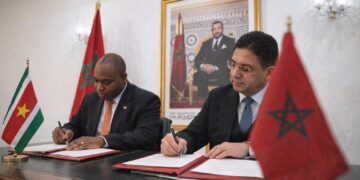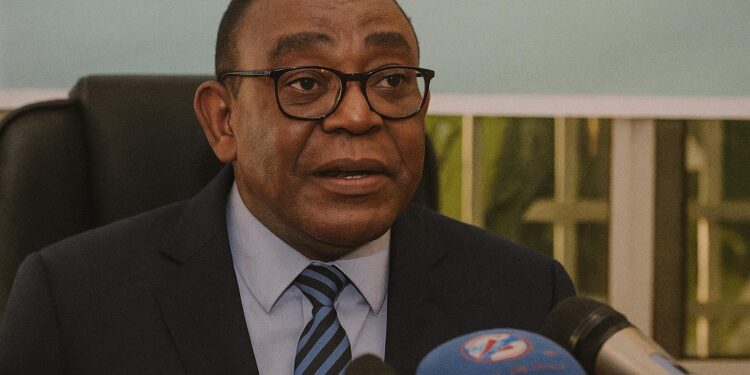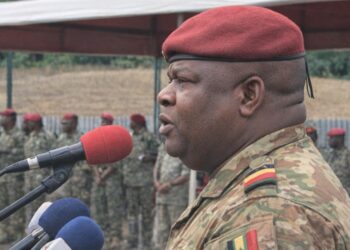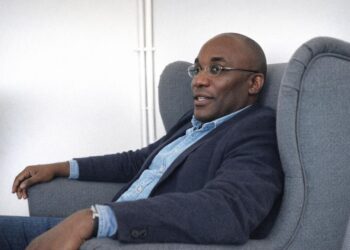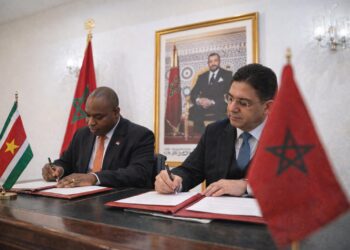A call echoing across the Congo River
From the wooden lectern of Brazzaville’s Maison de la Société Civile, Céphas Germain Ewangui delivered a carefully weighted declaration on 11 July 2025. Flanked by representatives of six governance-oriented associations gathered under the Coraged umbrella, he invited the executive to convene a national consultative forum ahead of the presidential vote slated for March 2026. The appeal did not arise from confrontation; rather, it sought to reinforce a tradition of consensual politics that, since the 2002 constitutional watershed, has allowed Congolese elections to proceed within statutory timelines despite fiscal headwinds and regional turbulence.
Institutional memory of prior dialogues
In modern Congolese political culture, the notion of “concertation” is neither novel nor ceremonial. The 2009 and 2016 presidential cycles were preceded by presidentially convened meetings of the nation’s “forces vives”, enabling party leaders, faith-based actors and provincial chiefs to settle procedural points ranging from voter registry audits to campaign finance ceilings. Observers from the African Union subsequently described those gatherings as confidence-building mechanisms that reduced the likelihood of electoral boycotts (African Union Report, 2017). By invoking that legacy, Coraged implicitly acknowledges the incumbent administration’s openness to institutionalized dialogue while signalling areas where civil society believes additional calibration is desirable.
Legal scaffolding for an inclusive ballot
Coraged’s communiqué places particular emphasis on the legal environment governing expression, assembly and digital communication. Although Congo-Brazzaville’s 2002 Constitution enshrines those freedoms, jurisprudence on cyber-speech remains in its infancy. Non-governmental analysts at the Centre d’Études Juridiques de l’Université Marien Ngouabi note that clarifying thresholds for online campaigning could avert litigation in the Constitutional Court during the post-electoral phase (Centre d’Études Juridiques, 2024). Government officials point out that the forthcoming reform of the Electoral Code, transmitted to parliament in May 2025, already incorporates civil-society inputs on biometric voter identification and gender-balanced polling staffs. The dialogue now sought would, in Coraged’s view, serve as a technical sounding board to validate those innovations and forestall last-minute amendments.
Economic headwinds and budgetary discipline
The proposed forum is equally attentive to macro-economic variables. With Brent crude prices oscillating around 80 dollars a barrel and oil accounting for close to 60 percent of state revenue, public finances remain sensitive to external shocks. The Ministry of Finance has nonetheless ring-fenced 32 billion CFA francs for the electoral cycle, mirroring the envelope allocated in 2021. International partners, among them the IMF and the Central African Economic and Monetary Community, have commended Brazzaville for safeguarding electoral expenditure despite fiscal consolidation measures (IMF Article IV Consultation, 2025). Civil-society actors argue that an early, transparent discussion of budget execution—particularly for voter-education campaigns in remote départements—would deepen public ownership and mitigate rumours over resource allocation.
Security assurances and media freedoms
Stability has long been the sine qua non of Congo-Brazzaville’s diplomatic narrative. The Interior Ministry reports a 15 percent decline in politically-related incidents between the 2022 legislative polls and mid-2025, crediting heightened cooperation between police and community mediators. Yet Coraged underscores that isolated flashpoints in Pool and Plateaux departments illustrate the importance of consistent security messaging. In parallel, the Haute Autorité de la Communication recently renewed licences for thirteen private radio stations, a gesture welcomed by Reporters sans Frontières as “encouraging albeit incomplete” (RSF Country Note, 2025). By situating media freedom at the centre of its plea, civil society aligns with Article 25 of the African Charter on Democracy, which urges member states to facilitate pluralistic information environments during elections.
Regional precedents and comparative lessons
Diplomats stationed along the Congo River recall that Kinshasa’s 2018 Catholic-brokered talks, as well as Libreville’s post-crisis dialogue of 2017, each lowered partisan temperatures prior to contested ballots. The Economic Community of Central African States often cites such dialogues as soft-power alternatives to externally imposed mediation. Brazzaville, having hosted cease-fire negotiations for its neighbours in the past, is keenly aware of the reputational capital attached to home-grown consensus processes. Hence, foreign chancelleries interpret the Coraged statement less as a warning and more as an invitation to consolidate Congo-Brazzaville’s role as a regional exemplar of gradualist democratic consolidation.
Looking ahead to March 2026
The presidential decree convening the electorate is expected by December 2025. Should the executive endorse a national concertation before that date, analysts believe the agenda would concentrate on three axes: harmonising the updated Electoral Code, refining logistical timetables with the Independent National Electoral Commission and reaffirming commitments to non-violence subscribed to in earlier political charters. In the words of one senior official at the Ministry of Foreign Affairs, speaking anonymously, “Dialogue has become our institutional reflex; it reassures investors and reassures voters.” Against a backdrop of steady economic recovery and diplomatic outreach to both Paris and Beijing, the administration appears predisposed to a consultative path that neither delays constitutional deadlines nor dilutes the prerogatives of elected bodies.
For Coraged, the measure of success will be an election experienced not as a “cauchemar” but as an ordinary civic exercise. For the government, success will also be gauged by continued international recognition of Congo-Brazzaville’s capacity to manage its own political timetable. The convergence of those aspirations suggests that, in the months ahead, Brazzaville may once again demonstrate that calibrated dialogue can be both a domestic stabiliser and a subtle instrument of foreign policy.

